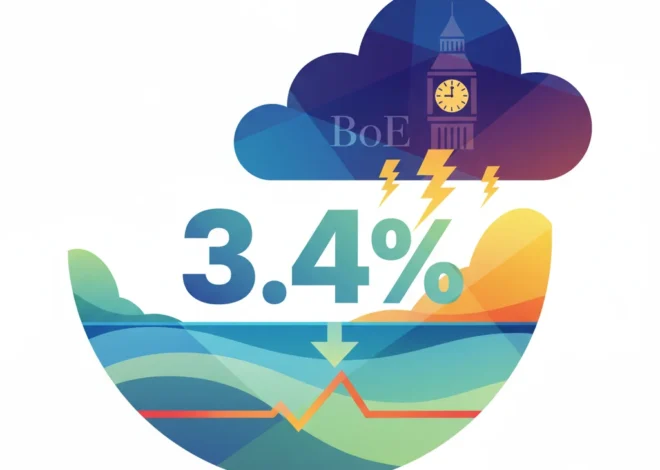
Macquarie Goes All-In on London: A Deep Dive into the London City Airport Takeover
In the high-stakes world of global finance, some moves are more than just transactions—they are powerful statements of intent. The recent announcement that Australian financial giant Macquarie has secured a controlling stake in London City Airport is one such move. By acquiring an additional 50% interest, Macquarie has firmly planted its flag at the heart of London’s financial district, signaling a profound confidence in the future of UK infrastructure, business travel, and the city’s enduring role as a global economic hub.
This deal is far more than a simple line item on a balance sheet. It’s a multi-billion-pound vote of confidence in a post-pandemic, post-Brexit Britain, executed by one of the world’s most sophisticated infrastructure investors. Let’s peel back the layers of this landmark acquisition to understand not just what happened, but why it matters for investors, the UK economy, and the future of urban aviation.
The Anatomy of the Deal: From Slice to Dominance
The transaction saw a Macquarie-managed fund purchase the remaining 50% stake held by the Ontario Teachers’ Pension Plan (OTPP), a major Canadian pension fund. This move comes just months after Macquarie first entered the scene, acquiring an initial slice of the airport. According to the Financial Times, this consolidation of ownership makes Macquarie the controlling shareholder, giving it significant influence over the airport’s strategic direction.
This acquisition is a cornerstone of Macquarie’s ambitious £20 billion UK investment push (source). Known colloquially as the “Vampire Kangaroo” for its aggressive and highly successful approach to acquiring and managing infrastructure assets, Macquarie has a long history in the UK. Its portfolio includes or has included stakes in everything from Thames Water to the gas network, making it a pivotal, if sometimes controversial, player in the nation’s critical infrastructure landscape. Taking control of London City Airport (LCY) is a natural, albeit significant, extension of this long-term strategy.
For OTPP, the sale represents a successful exit from a long-term investment. Pension funds often invest in stable, cash-generating assets like airports over long horizons. Having navigated the unprecedented turbulence of the pandemic, OTPP likely saw the current market recovery as an opportune moment to crystallize its returns and re-allocate capital.
A Billion Deal, A Sudden Downgrade: Did Anglo American Miss a Red Flag with Teck?
Why London City Airport? The Allure of a Unique Asset
To understand Macquarie’s rationale, one must appreciate what makes London City Airport a “trophy asset” in the world of infrastructure investing. Unlike the sprawling hubs of Heathrow or Gatwick, LCY’s value proposition is built on specificity and convenience.
- Unbeatable Location: Nestled in the Royal Docks, LCY is a stone’s throw from Canary Wharf and a short DLR ride from the City of London. This proximity to the twin hearts of UK finance and banking makes it the preferred gateway for time-sensitive business travelers.
- Operational Efficiency: The airport’s compact size is its greatest strength. It boasts “kerb-to-gate” times that are the envy of the industry, allowing passengers to move from arrival to their departure lounge in minutes, not hours.
- A Premium Niche: LCY primarily serves short-haul European routes, catering to a high-yield demographic of business executives, financiers, and consultants. This focus allows it to command premium pricing and attract flagship carriers like British Airways, KLM, and Swiss.
- Post-Pandemic Rebound: While business travel was hit hard by the pandemic, it is experiencing a robust recovery. The need for face-to-face meetings to close deals, manage teams, and build relationships has proven resilient. LCY is at the forefront of this resurgence.
The airport’s recovery trajectory has been a key factor in its valuation. While specific figures for the deal remain private, the asset’s performance provides a clear indicator of its renewed health. Below is a look at the airport’s passenger traffic recovery, a critical metric for any aviation investor.
| Year | Passenger Numbers (Approx.) | % of Pre-Pandemic (2019) Levels |
|---|---|---|
| 2019 (Baseline) | 5.1 million | 100% |
| 2021 | 0.7 million | ~14% |
| 2022 | 3.0 million | ~59% |
| 2023 (Projected) | 4.2 million | ~82% |
Note: Data is illustrative to demonstrate recovery trends reported by industry analysts. The strong rebound in traffic underpins the asset’s attractiveness to investors like Macquarie.
The Bigger Picture: Infrastructure, Private Capital, and the UK Economy
Macquarie’s takeover of LCY is a microcosm of several powerful trends shaping the global economy and investment landscape.
The Unquenchable Thirst for Infrastructure
In an era of volatile stock market performance and unpredictable economic cycles, infrastructure assets are the bedrock of many institutional portfolios. Airports, toll roads, ports, and utilities offer long-term, stable, and often inflation-linked cash flows. Global funds, managing trillions on behalf of pensioners and savers, are constantly seeking high-quality assets like LCY. Their long investment horizons allow them to ride out short-term volatility, such as a pandemic, and focus on the asset’s intrinsic long-term value. This deal highlights the immense power of private capital in owning and operating what is essentially public infrastructure.
A Bullish Signal for “Global Britain”
For the UK economy, this is a significant vote of confidence. At a time of persistent questions about the UK’s post-Brexit economic trajectory, a major global investor doubling down on a critical London asset sends a powerful message. It suggests that, from the outside looking in, the UK’s legal and regulatory framework remains attractive for big-ticket investing, and London’s position as a pre-eminent financial center is secure. The £20bn war chest Macquarie has earmarked for the UK will likely target other sectors like renewable energy, digital infrastructure (data centers, fiber networks), and transportation (source).
The Pessimism Paradox: Why We Feel the Economy is Broken and AI Won't Be a Quick Fix
The Future of Airport Management: Technology and Innovation
With a single, sophisticated owner at the helm, LCY could become a testbed for innovation. The world of airport management is ripe for disruption from financial technology and other digital advancements. We could see:
- Seamless Payments: Fully integrated payment systems for parking, retail, and lounges, potentially utilizing new digital wallet technologies.
- Biometric Journeys: Using facial recognition from check-in to boarding, eliminating the need for physical documents.
- Data-Driven Operations: Advanced analytics to optimize aircraft turnaround times, passenger flow, and resource allocation.
- Supply Chain Modernization: While a long shot, some futurists even envision technologies like blockchain being used to create transparent and secure supply chains for everything from aviation fuel to retail goods within the airport ecosystem.
Macquarie’s expertise is not just in financial engineering but in operational improvement. Their goal will be to sweat the asset—to make it more efficient, more profitable, and a better experience for its premium clientele.
Conclusion: More Than an Airport, A Strategic Chess Move
Macquarie’s consolidation of its ownership in London City Airport is a landmark event in the UK’s corporate and infrastructure landscape. It’s a story of strategic vision, the enduring appeal of high-quality infrastructure, and a powerful belief in London’s future.
For investors, it’s a reminder of the “real assets” class and the role of patient, private capital in shaping our world. For the field of economics, it’s a case study in foreign direct investment and a signal of confidence in the UK market. And for the millions of travelers who will pass through its gates, it marks the beginning of a new chapter for London’s most convenient airport, now under the stewardship of one of the world’s most formidable infrastructure managers.
The flight path is set. As Macquarie takes the controls, the industry will be watching closely to see just how high London City Airport can fly.
Beyond the Bailout: Why a 4M Copper Deal Signals a New Era in Global Economics


